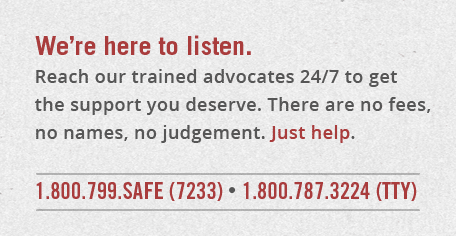• Also see Help and Healing: Abuse
Many people believe domestic violence only happens to certain types of people. But physical and verbal abuse in the home exist in every racial, religious and socioeconomic group in the United States. If you are a victim — or you know someone who is — take the following steps to stop the violence.

Realize it’s not your fault. Abusing someone is a choice made by the abuser, not the abused. Those who are violent toward family members do so to gain power and control. Nothing the abused spouse has done or can do justifies or excuses the violence. And while certain things may seem to trigger an abuser’s wrath, no one DESERVES to be a victim of physical violence or verbal assault.
Tell someone about your problem. Most victims of family violence are silent about their abusive situations. They fear that telling others will somehow betray their spouse or embarrass them. Even though your abuser may have made you feel otherwise, those who love you WILL understand your fears. If you don’t have family or friends you can depend on, contact a local women’s shelter or search one of the Web sites below for more information on who to talk with about domestic violence.
Get out of the abusive situation. Even if you want to try to work things out, finding a shelter or a friend to stay with will stop the abuse right away. Leave quickly and without discussing your departure with your violent spouse. If you are in fear for your safety or your children’s, contact your local law enforcement agency to find out what steps to take to get a restraining order against your abusive partner.
Get help. Support groups and intervention programs can help you heal from the tremendous psychological and emotional damage caused by abuse. As your wounds heal, you need help to heal your emotions as well. Try one of the links below or contact your local law enforcement agency for recommendations of intervention programs and domestic abuse counseling services in your area.
Get help for your children. Though your children may not have been physically harmed, seeing the abuse of someone they love is a traumatic experience, and an abuse of its own kind. Also, the most common risk factor for adult domestic violence is witnessing this type of abuse as a child. Stop the abuse cycle by helping your children understand at an early age that violence against a family member is ALWAYS wrong and that every human being deserves to be treated with respect and dignity.
Copyright © 2002 Lisa Brock, Used with permission. Originally seen at Focus at the Family.












